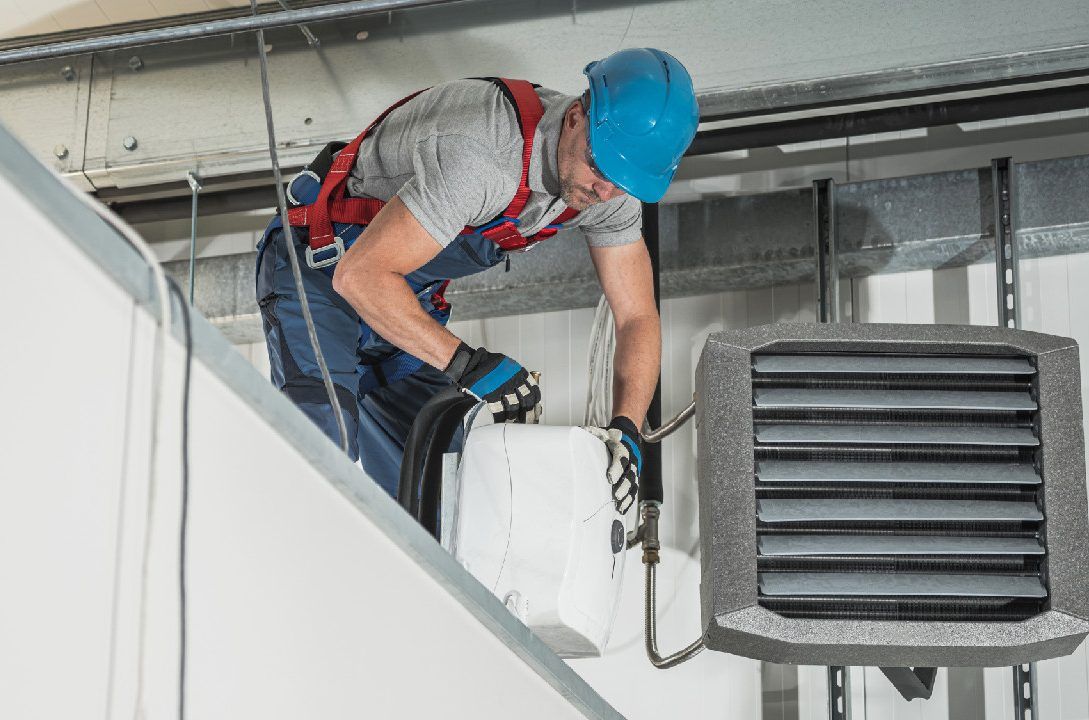The HVAC (Heating, Ventilation, and Air Conditioning) industry plays a crucial role in providing comfort, indoor air quality, and energy efficiency in residential, commercial, and industrial settings. As societies continue to prioritize environmental sustainability, energy efficiency, and indoor comfort, the HVAC industry is poised for a promising future.
In this blog post, we will explore the current state of the HVAC industry and the trends that will shape its future.
- Increasing Demand for Energy Efficiency: Energy efficiency is a key driver in the HVAC industry’s evolution. With growing concerns about climate change and rising energy costs, consumers and businesses are increasingly seeking HVAC systems that minimize energy consumption while maintaining optimal comfort levels. Industry advancements have led to the development of high-efficiency heating and cooling equipment, smart thermostats, and advanced control systems, all aimed at reducing energy consumption and environmental impact.
- Embracing Smart and Connected Technologies: The advent of the Internet of Things (IoT) and smart home technologies has had a significant impact on the HVAC industry. Smart thermostats and connected HVAC systems allow users to control their heating and cooling remotely, optimize energy usage, and receive real-time data and alerts about system performance. These technologies not only enhance convenience for end-users but also enable HVAC professionals to provide proactive maintenance and efficient service, resulting in improved customer satisfaction.
- Focus on Indoor Air Quality: Indoor air quality (IAQ) has gained significant attention in recent years, given its impact on health and well-being. As awareness about IAQ increases, the HVAC industry is prioritizing the development of systems that effectively filter pollutants, regulate humidity levels, and provide adequate ventilation. Advanced air purification technologies, such as UV disinfection and HEPA filtration, are becoming more prevalent, ensuring healthier indoor environments for occupants.
- Integration of Renewable Energy Sources: The HVAC industry is embracing renewable energy sources as a means of reducing dependence on fossil fuels and mitigating carbon emissions. Integration of solar panels, geothermal systems, and heat pumps allows HVAC systems to harness clean and sustainable energy. Renewable energy-powered HVAC systems not only contribute to environmental sustainability but also provide long-term energy cost savings for consumers.
- Adoption of Green Building Standards: With the rise of green building practices and sustainability initiatives, the HVAC industry is aligning itself with these trends. HVAC systems are being designed to meet or exceed green building standards, such as LEED (Leadership in Energy and Environmental Design) certification. This involves incorporating energy-efficient equipment, implementing advanced controls, and optimizing system performance to achieve sustainable and eco-friendly building operations.
- Emphasis on Maintenance and Service: The future of the HVAC industry lies not only in product innovation but also in comprehensive maintenance and service offerings. HVAC companies are increasingly investing in preventive maintenance programs, remote monitoring capabilities, and data analytics to optimize system performance, prevent breakdowns, and minimize downtime. Proactive maintenance reduces energy waste, extends equipment lifespan, and enhances overall customer satisfaction.
- Technological Advancements and Automation: The HVAC industry is witnessing technological advancements that streamline installation processes, improve system diagnostics, and enhance overall efficiency. Automation and robotics are being utilized for tasks such as ductwork fabrication, system installation, and equipment servicing, leading to increased productivity and cost-effectiveness.
Conclusion
The HVAC industry is undergoing significant transformation driven by factors such as energy efficiency, smart technologies, indoor air quality concerns, renewable energy integration, green building standards, and service-focused solutions. As the world becomes more conscious of environmental sustainability and comfort requirements, the HVAC industry is well-positioned to meet these evolving needs. By embracing innovation, prioritizing energy efficiency, and adapting to changing market demands, the HVAC industry is poised for a bright and promising future.
Related Posts:
Get Started with a free 15 -day trial
No credit card required for Trial Plan
Continue using starter plan for free forever, after trial or upgrade to Premium Subscription






